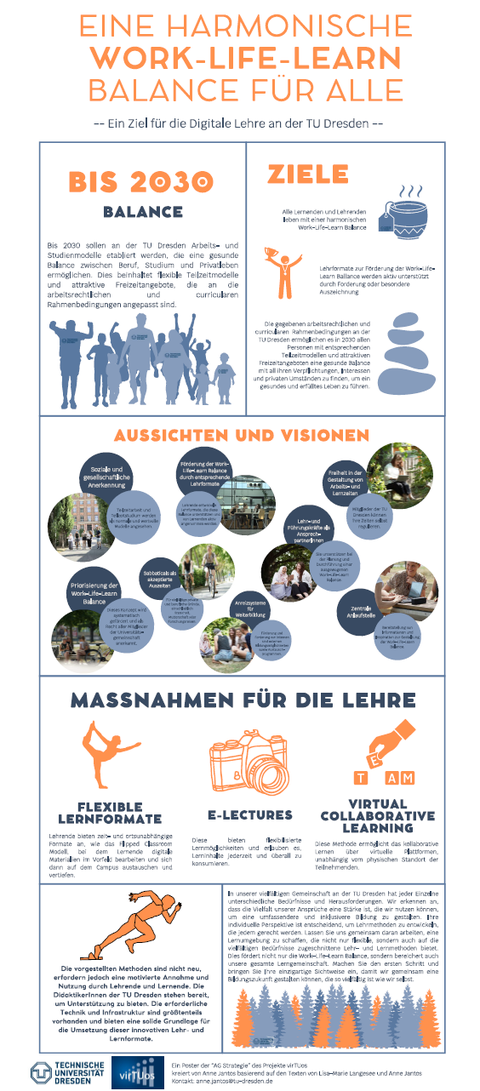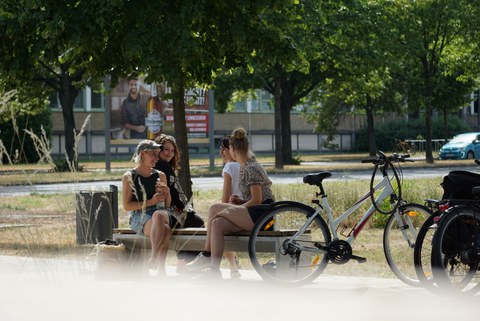Work-Life-Learn Balance
In our diverse community at TU Dresden, each individual has different needs and challenges. We see the diversity of our needs as a strength that we can use in a targeted manner to provide a more comprehensive and inclusive education. Individual perspectives can make a decisive contribution to developing teaching methods that do justice to everyone. (see Diversity & Inclusion Strategy)
We want to work together to create a learning environment that not only offers flexible teaching and learning methods, but also those that are individually tailored to diverse needs. This promotes work-life-learn balance on the one hand and enriches our entire learning community on the other. (see teaching strategy)
Infographic Work-Life-Learn-Balance

Maßnahmen für die Lehre
What do we want?
By 2030, work and study models are to be established at TU Dresden that enable a healthy balance between work, studies and private life. This includes flexible part-time models and attractive leisure activities that are adapted to the legal and curricular framework conditions. (cf. university development strategy)
The aim is to achieve a harmonious work-life-learning balance for all students and teaching staff. Teaching formats that promote this balance are actively supported and particularly rewarded. Among other things, this should increase identification with TU Dresden as an employer and promote a holistically conceived and practiced working model. (see teaching strategy)
Where do we want to go?
We are striving for social and societal recognition, according to which part-time work and part-time study are seen as normal and valuable models. The promotion of work-life-learning balance is a central concern, with teaching staff developing teaching formats that support this balance and are actively accepted by students. (cf. university development strategy)
Members of TU Dresden should have the freedom to regulate their own working and learning times. The work-life-learn balance is systematically promoted and recognized as important for all members of the university community (see University Development Strategy).
Sabbaticals are seen as accepted time off for a variety of personal and professional reasons, including illness, parental leave or research trips. Teaching and management staff act as points of contact and provide support in planning and implementing a work-life-learn balance. (cf. university development strategy)
Incentive systems for continuing education that include the promotion of internal and external educational opportunities and exchange programs should also be sought. In addition, a central point of contact should be established or integrated to provide information and inspiration on how to achieve a work-life-learn balance. (cf. teaching strategy)
The following methods are known, but require motivated acceptance and use by teachers and students. The didactics department at TU Dresden offers support in this regard. The existing technical and infrastructural equipment provides a sustainable basis for the realization of innovative teaching and learning formats. (see teaching strategy)
How do we achieve this?
- Flexible learning formats:
Lecturers offer formats that are independent of time and location, such as the flipped classroom model, in which learners work on digital materials in advance and then exchange ideas and explore the content in greater depth on campus. - Recording of lectures (e-lectures):
These offer more flexible learning opportunities and allow learning content to be accessed anytime and anywhere. - Virtual Collaborative Learning (VCL):
This method enables collaborative learning via virtual platforms, regardless of the physical location of the participants.
© Anne Jantos

